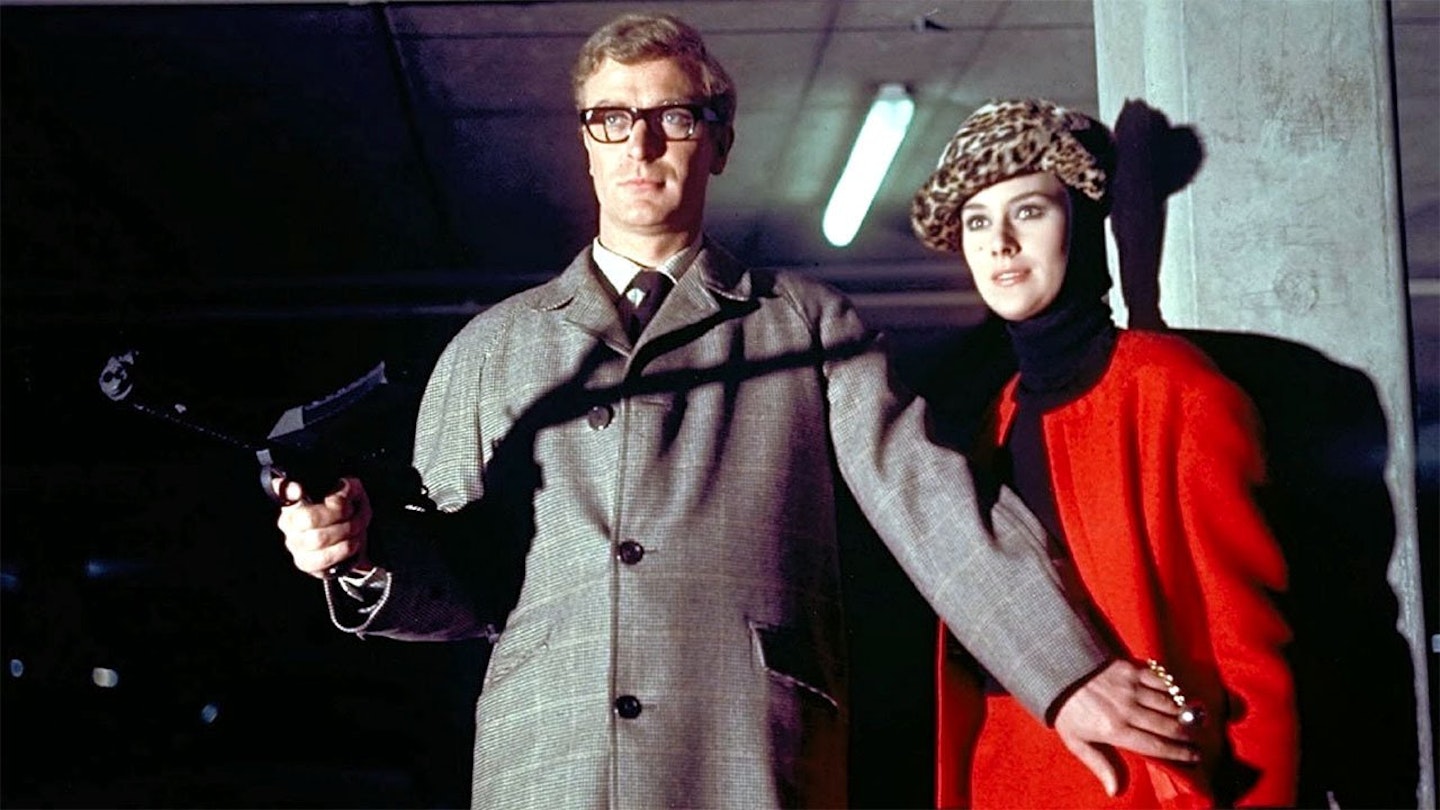In the 60s the secret agent emerged as premier screen hero, cold warrior and sex symbol. No one could touch Sean Connery's James Bond — until Michael Caine's Harry Palmer. Palmer was the creation of novelist Len Deighton, whose Ipcress File was adapted into the first and best of the Palmer thrillers during the goldrush of filmmakers seeking to mine lucrative spy caper franchises. (Funeral In Berlin and Ken Russell's fun Billion Dollar Brain followed in 1966 and 1967.)
Bowing in the same year Bond was saving the world from total destruction in Thunderball, bespectacled Harry, more modestly engaged in slowing the brain drain of British scientists, immediately endeared himself to average blokes. Harry Palmer is forever enshrined as the credible everyman alternative to Bond. In conception and in Caine's performance he was a fantasy figure for guys who wear glasses, people living in anonymous flats, driving unglamorous, functional cars and shopping for groceries after work. You can relate to Harry Palmer. He's capable and crafty. He's sexy. And he can cook.
Bond's fabulous world is one of exotic locations, babes, stupendous stunts, ingenious gadgets and gizmos. It is rich with explosively lavish underground lairs of megalomaniacal masterminds with whom 007 contends when he isn't between the sheets, behind the wheel of an Aston Martin or BMW, in a casino or relaxing with a vodka martini. Palmer's world is surveillance shifts in a grotty attic, furtive shenanigans in British Rail stations, the rendezvous on park benches, an HQ disguised as a domestic employment bureau, and a villains' lair in a disused warehouse. Harry drinks whiskey, plays the horses, is issued the keys to a boring blue Zodiac that doesn't do anything except go, and he is the first swinging London bachelor to be seen grinding his own coffee.
One witty touch hinting at the fact that Harry may have read an Ian Fleming Bond novel or two with relish is his picking a woman's charm bracelet and his gun out of the bed before he leaves for work. What they have in common — in addition to John Barry musical scores accompanying their adventures — is a studied unemotional mien, the ability to focus coolly under pressure, and an insolent disregard for going by the book or kowtowing to bureaucratic disposable replacement for a murdered agent and when — having crossed paths fatefully with the CIA, cracked a dastardly foreign brainwashing, amnesia-inducing plot and exposed a traitor — he later reproaches his boss with, "I might have been killed or driven stark raving mad." He's briskly reminded, "That's what you're paid for." The risks of being killed or driven mad might be preferable to Palmer superiors. Bond has the suave insolence of an Old Etonian. Palmer's is the sturdy insolence of a Cockney squaddie.
An army sergeant assigned to a decidedly unglamorous corner of British Intelligence, Palmer is taken off surveillance and sent to a humble covert Home Office department to aid the search for a snatched physicist precisely because his qualities as an "insubordinate bastard" are called for. He's also a handy than the avalanche of paperwork and codespeak in this spy game. Amusing repeated references to the B107 (Palmer's career record), triplicate Tl 04s, LlOls, a TX82, a 3H, a CC1 — even a park bench is designated T108 — are sufficient motivation to drive him out of the office run by a Fag Ash Lil secretary called Alice. The seasoning of dry humour plays nicely against the subdued but tense cat and mouse action: a silent combat with the bald heavily code-named "House Martin" seen through the glass of a call box; a car park hostage exchange and confrontation; the assassination of Gordon Jackson's Jock after borrowing Harry's car.
These scenarios make the exciting, brutally in-your-face climax of Palmer's abduction and torture the more startling, Palmer enduring through his sheer bloody-mindedness and self-inflicted pain. Director Sidney J. Furie excelled himself pacing Palmer's adventure and got his ticket to Hollywood, where he was thereafter a moderately successful workhorse but never topped The Ipcress File. Caine, Zulu under his belt and Alfie ahead, is the cheeky working class but aspirational bright spark hero par excellence, captured at the exact moment he became a star.

